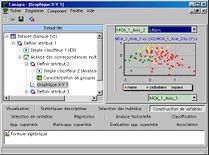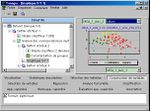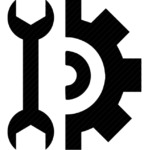Table of Contents
Tangara
 From EduTechWiki - Reading time: 5 min
From EduTechWiki - Reading time: 5 min
Tangara 1.4.50 (2013/12/18)
Developed by: Ricco Rakotomalala, Université Lyon 2
License: Free&Open source
Web page : Tool homepage
Tool type : Application software
The last edition of this page was on: 2014/10/14
The Completion level of this page is : Low
The last edition of this page was on: 2014/10/14 The Completion level of this page is : Low
SHORT DESCRIPTION
[[has description::Quotes from the official home page (10/2014):
- TANAGRA is a free DATA MINING software for academic and research purposes. It proposes several data mining methods from exploratory data analysis, statistical learning, machine learning and databases area.
- The main purpose of Tanagra project is to give researchers and students an easy-to-use data mining software, conforming to the present norms of the software development in this domain (especially in the design of its GUI and the way to use it), and allowing to analyse either real or synthetic data.
- The second purpose of TANAGRA is to propose to researchers an architecture allowing them to easily add their own data mining methods, to compare their performances. TANAGRA acts more as an experimental platform in order to let them go to the essential of their work, dispensing them to deal with the unpleasant part in the programmation of this kind of tools : the data management.
- The third and last purpose, in direction of novice developers, consists in diffusing a possible methodology for building this kind of software. They should take advantage of free access to source code, to look how this sort of software is built, the problems to avoid, the main steps of the project, and which tools and code libraries to use for. In this way, Tanagra can be considered as a pedagogical tool for learning programming techniques.
According to its author, Tangara can be compared to Weka: In comparison it has an easier to use Interface, but less functionality.]]
TOOL CHARACTERISTICS
Usability
Tool orientation
Data mining type
Manipulation type
IMPORT FORMAT : TXT
EXPORT FORMAT :
| Tool objective(s) in the field of Learning Sciences | |
|
☑ Analysis & Visualisation of data |
☑ Providing feedback for supporting instructors: |
Tool can perform:
- Data extraction of type:
- Transformation of type:
- Data analysis of type:
- Data visualisation of type: (These visualisations can be interactive and updated in "real time")
ABOUT USERS
Tool is suitable for:
Required skills:
STATISTICS: Medium
PROGRAMMING: Medium
SYSTEM ADMINISTRATION: Basic
DATA MINING MODELS: Medium
FREE TEXT
| Tool version : Tangara 1.4.50 2013/12/18 (blank line) Developed by : Ricco Rakotomalala, Université Lyon 2 | 
|
SHORT DESCRIPTION[edit source]
Quotes from the official home page (10/2014):
- TANAGRA is a free DATA MINING software for academic and research purposes. It proposes several data mining methods from exploratory data analysis, statistical learning, machine learning and databases area.
- The main purpose of Tanagra project is to give researchers and students an easy-to-use data mining software, conforming to the present norms of the software development in this domain (especially in the design of its GUI and the way to use it), and allowing to analyse either real or synthetic data.
- The second purpose of TANAGRA is to propose to researchers an architecture allowing them to easily add their own data mining methods, to compare their performances. TANAGRA acts more as an experimental platform in order to let them go to the essential of their work, dispensing them to deal with the unpleasant part in the programmation of this kind of tools : the data management.
- The third and last purpose, in direction of novice developers, consists in diffusing a possible methodology for building this kind of software. They should take advantage of free access to source code, to look how this sort of software is built, the problems to avoid, the main steps of the project, and which tools and code libraries to use for. In this way, Tanagra can be considered as a pedagogical tool for learning programming techniques.
According to its author, Tangara can be compared to Weka: In comparison it has an easier to use Interface, but less functionality.
TOOL CHARACTERISTICS[edit source]
| Tool orientation | Data mining type | Usability |
|---|---|---|
| This tool is designed for general purpose analysis. | This tool is designed for Structured data mining, Text mining. | Authors of this page consider that this tool is rather easy to use. |
| Data import format | Data export format |
|---|---|
| TXT. | . |
| Tool objective(s) in the field of Learning Sciences | |
|
☑ Analysis & Visualisation of data |
☑ Providing feedback for supporting instructors: |
Can perform data extraction of type:
Can perform data transformation of type:
Can perform data analysis of type:
Can perform data visualisation of type:
(These visualisations can be interactive and updated in "real time")
ABOUT USER[edit source]
| Tool is suitable for: | ||||
| Students/Learners/Consumers:☑ | Teachers/Tutors/Managers:☑ | Researchers:☑ | Organisations/Institutions/Firms:☑ | Others:☑ |
| Required skills: | |||
| Statistics: MEDIUM | Programming: MEDIUM | System administration: BASIC | Data mining models: MEDIUM |
OTHER TOOL INFORMATION[edit source]

|
| galerie interface tanagra.jpg |
| bandeau tanagra.jpg |
| Tangara |
| Free&Open source |
| Ricco Rakotomalala, Université Lyon 2 |
| 2013/12/18 |
| 1.4.50 |
| http://eric.univ-lyon2.fr/~ricco/tanagra/index.html |
[[has description::Quotes from the official home page (10/2014):
According to its author, Tangara can be compared to Weka: In comparison it has an easier to use Interface, but less functionality.]] |
| General analysis |
| Students/Learners/Consumers, Teachers/Tutors/Managers, Researchers |
| Medium |
| Medium |
| Basic |
| Medium |
| Application software |
| Structured data mining, Text mining |
| Data extraction, Data transformation, Data analysis, Data visualisation, Data conversion, Data cleaning |
| TXT |
| rather easy to use |
| Low |
Ricco Rakotomalala, "TANAGRA : un logiciel gratuit pour l'enseignement et la recherche", in Actes de EGC'2005, RNTI-E-3, vol. 2, pp.697-702, 2005.
 KSF
KSF

